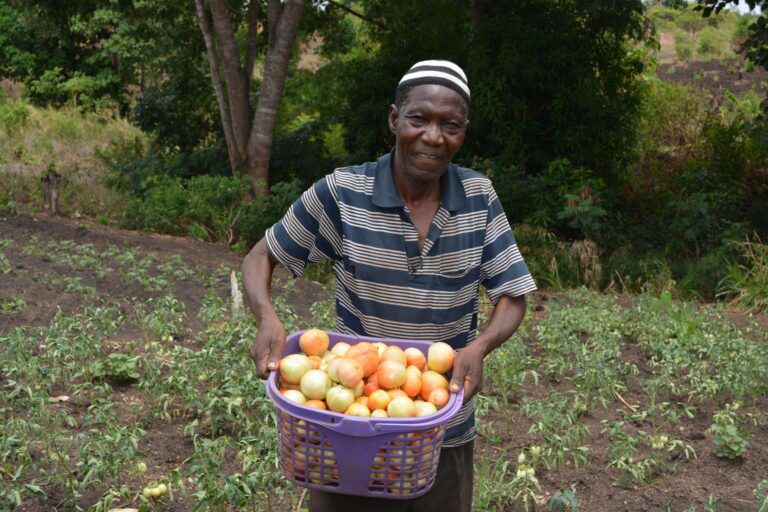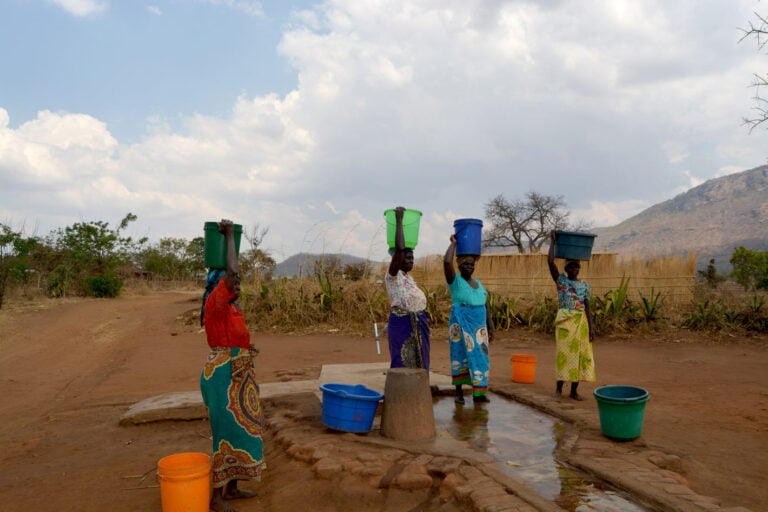Climate Change and Water Poverty in Malawi: Insights from Princeton University Students
Welcome to a blog series, written by students from Princeton University, which delves into the intricate and interwoven challenges of gender, climate, and water access in Malawi. Pump Aid understands that sustainable development goes beyond infrastructure—it requires a deep understanding of the social, environmental, and economic factors that shape communities. Through this series, the aim is to shed light on the critical issues impacting Malawians and to highlight the stories of resilience, innovation, and empowerment that are driving positive change. Climate change and water poverty in Malawi is the first piece in the four part blog series.
Climate change and water poverty in Malawi
Water access is crucial to the health and well-being of communities in Malawi, and the ramifications of climate change are decreasing accessibility to this pivotal resource. The increasingly volatile nature of rain patterns in recent years has made Malawi vulnerable. Over 1,000 Malawians have lost their lives and homes since 2019 due to tropical cyclones. Furthermore, flooding in 2023 catalysed Malawi’s largest cholera outbreak on record, with an over 1,700 fatality count.
Inconsistent weather patterns also affect crop growth, making it difficult for the heavily reliant subsistence farmers to support their livelihoods. Given that 80% of Malawi’s population depends on subsistence agriculture, crop yields are crucial. Consistent and stable rain patterns are necessary to maintain the ecological health of the region and the financial well-being of Malawians.
Regional Discrepancies in Water Access
The detrimental implications of climate change disproportionately affect different regions of the country. Though approximately 80% of the population has access to clean water, there are evident discrepancies among regions. Rural regions in Malawi are more vulnerable to water inaccessibility due to having less developed water infrastructures than urban areas. As inconsistent and volatile weather patterns continue, rural Malawians are at a greater risk of facing the repercussions of climate change. Their lack of access to pivotal resources makes it difficult to recover from drastic climate events.
Sustainable Solutions for Water Access
These developments require sustainable solutions that help Malawi thrive and combat the effects of climate change. Pump Aid’s dedication to delivering hand ups and not handouts provide Malawians with sustainable methods of navigating through the effects of climate change. One of its missions is to promote irrigation methods for farming and help alleviate dependence on rainfall for crop watering. The reliance on rainfall makes it increasingly difficult for small-scale farmers to handle the unstable weather conditions. Implementing irrigation pumps would enable farmers to cultivate and harvest their crops year-round, fostering productivity and food security in communities.
Pump Aid’s systematic approach empowers farmers to navigate the instability of increased dry periods and increases water access. Furthermore, they offer comprehensive training programmes that equip local communities with the necessary skills and knowledge to install, repair, and maintain water pumps. This system increases accessibility to potable water and fosters independence and innovation throughout communities. Given that rural regions are often disproportionately affected by climate change, it is crucial that we foster these systems of independence.
Impact and Commitment
In 25 years of service, Pump Aid have provided 2 million people with access to reliable water, improved the lives of over 13,000 children under the age of 5, and sold 2,400 water pumps. They are dedicated to improving the lives of the people in Malawi and helping them navigate the increasingly unstable climate conditions. As continuous global efforts are made towards the mitigation of climate change, they want to ensure that vulnerable communities have access to the necessary resources for their well-being.
Climate change and water poverty in Malawi are deeply interconnected issues that require a multifaceted and sustainable approach. Through our efforts at Pump Aid and the insightful contributions from Princeton University Economic Development Organisation, we aim to build a resilient and empowered future for Malawian communities. By addressing water access and supporting sustainable agricultural practices, we can help mitigate the impacts of climate change and promote long-term prosperity and equality in Malawi.







